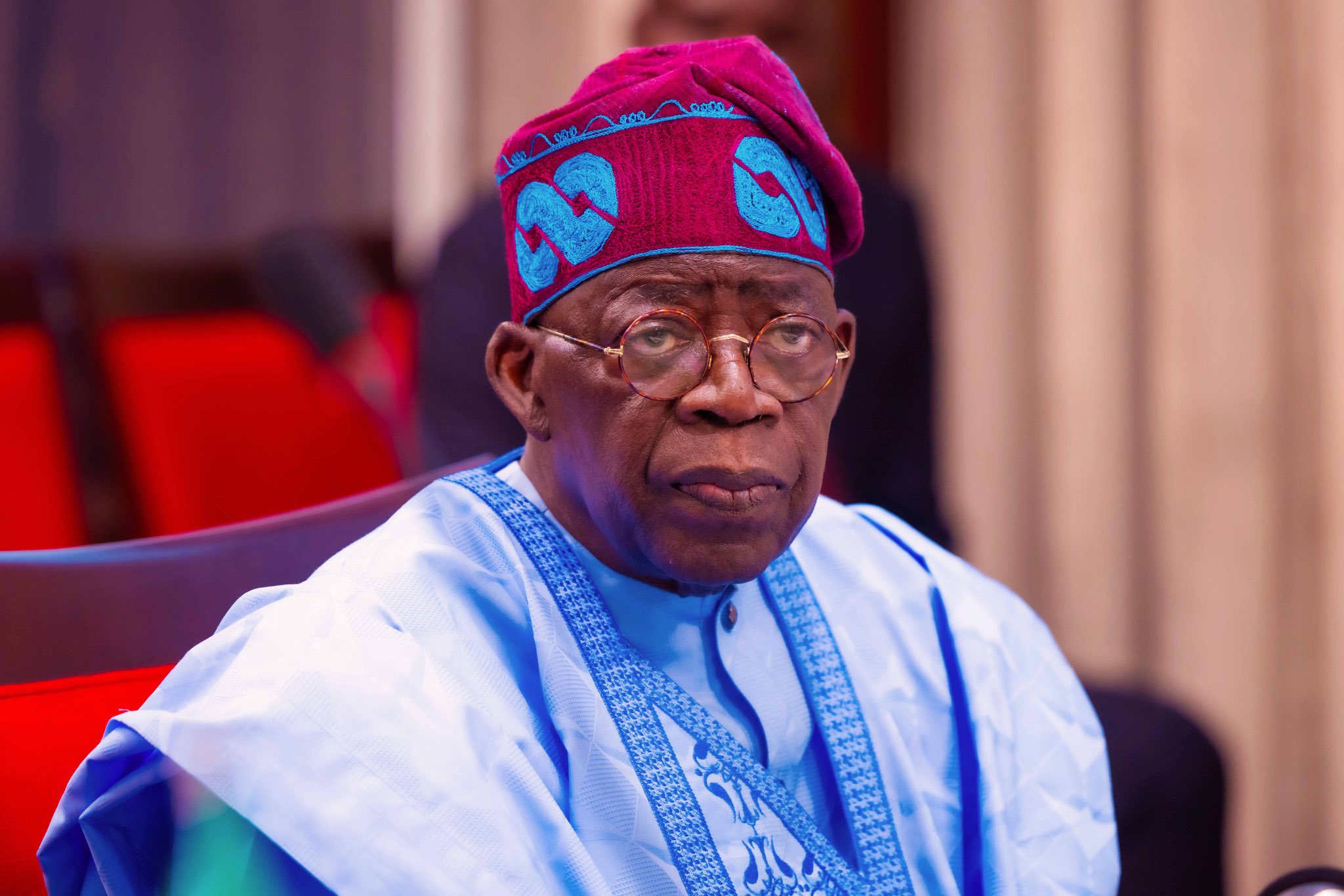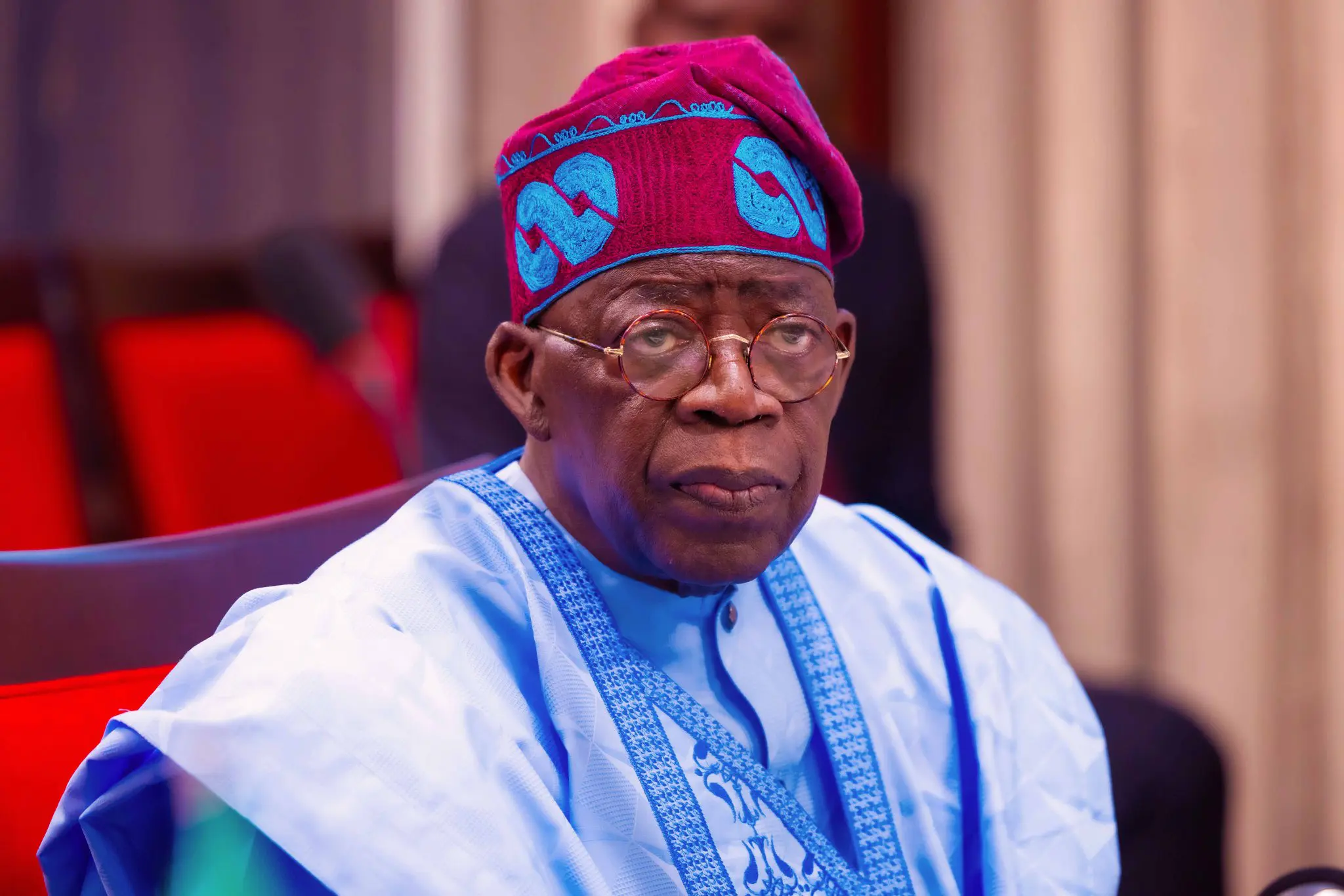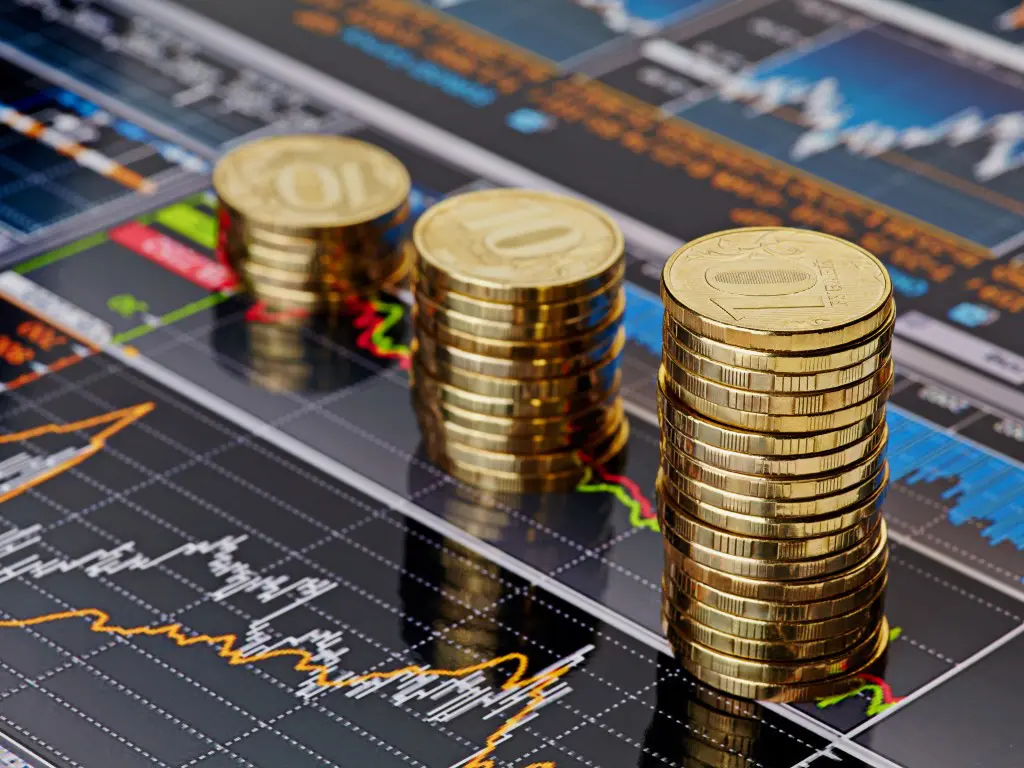Nigerians survived the year 2023 amid the highs and lows of the country’s economy.
For many, surviving the last twelve months was hellish, occasioned by the President Bola Ahmed Tinubu government’s major economic policies- fuel subsidy removal and exchange rate reform in the second quarter of 2023.
The year in view was challenging not only for ordinary Nigerians but for business owners.
In 2023, GlaxoSmithKline Consumer Nigeria, Procter & Gamble, and other businesses announced their exit from Nigeria.
The companies blamed their decisions on the economic hardship in Nigeria caused by the foreign exchange crisis, energy crisis and multiple taxation.
This is because the Q1 of the year started on a negative footing with the devastating cash crunch caused by the implementation of Naira’s redesigned policy until the Supreme Court came to the rescue.
Still, the general elections in February and March also contributed to the slow pace of business in Q1.
To this end, Nigeria’s Gross Domestic Product growth fell to 2.31 per cent in the first Quarter of 2023 from 3.52 per cent in the fourth Quarter of 2022, according to the Q1 GDP data from the National Bureau of Statistics.
Part of the woes was that Nigeria’s unemployment increased from 4.1 per cent in Q1 to 4.2 per cent in Q2 2023.
The impact of fuel subsidy removal and unification of exchange rates lagged into the last three quarters of 2023.
Fuel subsidy removal
Tinubu’s swearing-in speech on May 29, 2023, set the tone for fuel subsidy removal when he said, ‘Fuel Subsidy is gone’.
From June 1, 2023, the policy implementation commenced. Consequently, the fuel pump price jumped from N198 per litre to N617/per litre.
This led to a hike in the prices of transportation, food, goods and services nationwide.
The National Bureau of Statistics consumer price index showed that inflation jumped to 28.20 per cent in November from 22.41 per cent in May 2023.
The development pushed up the cost of living, including house rent and school fees, skyrocketing by more than 100 per cent in the year under review.
The country’s economy metamorphosed from being frail in the first quarter to arguably worst in the last three quarters.
The inflation rate, a fundamental indicator of citizenry well-being, never cooled off but continued to rise throughout the year.
According to the National Bureau of Statistics, the Consumer Price Index jumped by 6.38 per cent to a 28.20 per cent high in November 2023.
By implication, the cost of living doubled and became unbearable for many Nigerians in the year under review.
Exchange Rate Reform
Another policy reform that shaped 2023 is the unification of the foreign exchange market or Naira floating.
The Central Bank of Nigeria on June 14 told commercial banks to allow Naira to trade freely at foreign markets.
The development further weakened the Naira by at least 49 per cent in the last six months to N907.11 per US Dollar from May- N461.5/$1.
Accordingly, the prices of goods and services hit the rooftop.
By implication, JetA1 fuel, minerals, wheat, electronics, pharmaceutical products and other consumer products’ prices jumped by at least 50 per cent in the period under review.
Gains
It was not all gloomy for Nigeria. Despite the economic hardship Nigerians grappled with in 2023, Tinunu’s bold policies have raked in more revenue for the government.
Revenue accruing to the federation account increased in the last half of 2023 due to fuel subsidy removal.
DAILY POST recalls that in the last six months, the Nigerian Government made N907.05 billion in June, N966.110 in July, N1.1 trillion in August, N903.48 billion in September, N906.955 billion in October, and N1.783 trillion in November 2023.
Also, the country’s financial sector made a rebound in 2023.
The Nigerian Exchange Limited achieved year-to-date growth of 45.90 per cent in 2023.
FG’s effort to cushion the impact of hardship on Nigerians
To cushion the impact of the economic hardship, President Tinubu’s administration in October approved a provisional wage of N35,000 wage increment, a 100 Billion Naira Compressed Natural Gas bus rollout programme, N25,000 cash transfers to 15 million vulnerable Nigerians, disbursement of N5 billion each to state governments as palliatives.
Despite the government’s palliatives and the negative effect of fuel subsidy removal, the impact has remained in the lives of Nigerians.
However, financial experts are optimistic that 2024 will be a better year for Nigerians.
Experts React
Speaking to DAILY POST in an interview on the review of Nigeria’s economy in 2023, the CEO of SD & D Capital Management, Mr Idakolo Gbolade said more Nigerians were pushed into poverty during the review period.
According to him, Nigerians struggled to survive the negative impact of fuel subsidy removal and foreign exchange rate policy.
“The economy of 2023 was very challenging. Apart from the fact that it was a transition year, the fuel subsidy removal and exchange rate policy added serious pressure to inflation and caused food inflation to rise through the roof.
“The CBN monetary policies of the past governor also helped to make the economy tighter, which led to serious pressure on various sectors of the economy because the constant increase of interest rates did not help tame inflation.
“Due to government policies, there was an increase in the number of Nigerians thrown into poverty, and purchasing power continually weakened, which caused many people to just manage themselves during the yuletide season.
“There was a sharp rise in the cost of living, and this affected housing both rent and outright purchase. Although the removal of fuel subsidy and exchange rate policy increased government revenue in the second half of the year, it has not resulted in a positive impact on the people, especially through the state governments,” he said.
Also, Prof Godwin Oyedokun, a don at the Lead City University in Ibadan told DAILY POST that Nigerians experienced challenging times in 2023.
He noted that the biggest loss in 2023 was the erosion of people’s disposable income due to the rising cost of essential goods and services.
According to him, “In 2023, Nigeria’s economy faced significant challenges in several key areas. The country has experienced high inflation rates, fuel and food price hikes, transportation difficulties, energy shortages, fluctuating foreign exchange rates, and increasing housing costs.
“These issues have put immense pressure on the average Nigerian citizen, causing financial strain and diminishing their purchasing power.
“One of the major losses in 2023 has been the erosion of the people’s disposable income due to the rising cost of essential goods and services.
“The average Nigerian has had to spend a significant portion of their earnings on fuel, food, and transportation expenses, leaving less money for other needs and investments.
“Moreover, the energy crisis has negatively impacted businesses, reducing productivity and job losses.
“Industries heavily reliant on consistent power supply, such as manufacturing and technology, have struggled to operate efficiently.”
Meanwhile, a renowned economist and former President and Chairman of the Council of Chartered Institute of Bankers, Prof Segun Ajibola, said President Tinubu, in the last quarter of 2023, made bold attempts to challenge the status quo.
He described the twin policies of fuel subsidy removal and unification of exchange rates as desirable for the long-term good of the country’s economy.
According to him, radical economic policies attract immediate pain.
“Things may get worse before getting better”, he said, adding that, “the year ushered in a peaceful transition from one political leadership to the other at the national level, though within the same party.”
“The change brought in several radical reform policies, bold attempts at challenging the status quo. Indeed, feasting where angels had feared to tread.
“The policies on removal of fuel subsidy, unification of exchange rates though desirable for the long term good of the economy, came with some immediate pains, occasioned by rising inflation and cost of living.
“The good aspect of the policies is seen in the fight against economic rent seekers, currency speculators and other vampires.
“Policies capable of attracting foreign investments are noticeable. National and sub-national governments are also seen battling poverty, disease and squalor through palliatives and other measures.
“The unintended consequences of some of the policies are profound, as food inflation, cost of doing business, infrastructures and landing cost of imported items are getting out of reach of an average Nigerian. Ordinarily, radical economic measures impose immediate pains. Things may get worse before getting better”, he told DAILY POST.
Nigeria’s economic prospects in 2024
2024 portends a lot of potential for Nigeria’s economy. With President Tinubu signing the N28.7 trillion budget into law on Monday, with a projected Gross Domestic Product at 3.88 per cent, the Government had set the baseline for the country’s economic recovery.
Earlier, Tinubu, in his New Year message, had assured Nigerians that worse times don’t last.
The President promised constant power supply and food security, boosting of foreign direct investment, restarting local refining of petroleum products and implementing key priority areas in the 2024 budget.
According to Gbolade, if the Government faithfully implements its promises, 2024 will be a great year for Nigerians.
“The Government of President Tinubu made some policy pronouncements like declaring a state of emergency in agriculture, provision of loans to various sectors and SME, provision of welfare to the extremely poor and elderly and wage awards for Federal government workers, which some states have emulated.
“The Government also proposed provisions for CNG buses, conversion kits from petrol engines to gas at subsidized rates and starting work for the usage of electric vehicles in the country.
“These policies, if properly implemented, will shape how the economy will fare in 2024.
“In 2024, the economy can slowly start recovering, and inflation could slow down before the year’s first half.
“More economic activities occasioned by the provision of single-digit interest rates loan facilities to various sectors and SMEs will stimulate the economy, and the coming on board of Dangote refinery, Port Harcourt refinery and other private refineries providing refined petroleum products would also affect the economy positively in 2024”, he said.
Ajibola believes the challenge for 2024 will be for the government to adequately implement its proposed promises to impact ordinary people’s lives.
“The challenge for 2024 is for the government to implement the policies on ground properly, transparently coordinate them and pursue accountability for optimum results.
“Policies that will stem inflation, strengthen the Naira, eliminate economic wastes, ensure food security, assure the security of lives and properties, provide a more investment-friendly atmosphere, and reduce importation of refined petroleum products and other essentials in favour of local production are required both in quantity and quality in 2024.
“The 2024 fiscal budget seems to contain several desirable policies awaiting faithful implementation. The overall expectation in 2024 is improved living conditions of the citizenry”, he noted.
Oyedokun, on his part, said Nigeria’s economic prospects will remain uncertain in 2024.
“Looking ahead to 2024, Nigeria’s economic prospects remain uncertain.
“The Government needs to implement comprehensive policies to tackle inflation, promote agricultural productivity, and diversify the economy beyond oil dependency.
“Creating an enabling environment for businesses to thrive and attract foreign investments will also be crucial.
“However, the success of future economic developments heavily depends on factors like political stability, effective governance, and the ability to manage external shocks.
“Ultimately, if these challenges are addressed properly, Nigeria has the potential to bounce back and achieve sustainable economic growth in 2024,” he further told DAILY POST.
2023 in retrospect: Tough, peak times of Nigeria’s economy under Tinubu



